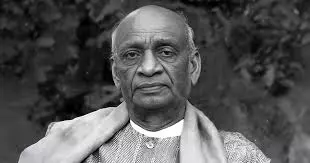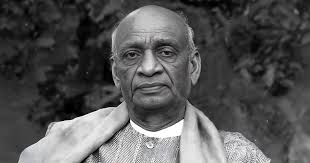
It’s time to look back at the timeless words of Sardar Vallabhbhai Patel, independent India’s first home minister, in his prescient letter to Pandit Jawaharlal Nehru, the first Prime Minister, on November 7, 1950. This was just over a month before Sardar Patel passed away on December 15, 1950. But Patel’s prophecy will haunt India till perpetuity if corrective action is not taken, even at this late date.
The congenital dislike that Communist China’s founder and overlord Mao Zedong had for India was too conspicuous to be missed, even by a layman. The ceaseless harassment of New Delhi has been the guiding principle of the People’s Republic ever since its birth in October 1949, with which Nehru’s naïve India was quick to establish diplomatic relations.
Few Indians seem aware of the toxic hatred for India that is evident in Mao’s writings. Sardar Patel was one of those rare Indians who had no illusions about China’s true intentions.
The democracies of the world are at a loss on how to deal with the Dragon, and New Delhi remains the biggest blundering nation over China. And the show goes on, as evident in the games China slyly played amidst the recent India-Pakistan four-day conflict. In May 2025, Beijing proved, once again, why Sardar Patel’s prophetic warning 75 years ago was correct.
He had said then: “The Chinese tried to delude us by professing peaceful intentions” and “managed to instil in our ambassador a false sense of confidence in their so-called desire to settle the Tibet problem by peaceful means”. Patel pointedly told Nehru that despite his “direct approaches as friends of China”, the “Chinese don’t regard us as their friends… With the Communist mentality of whoever isn’t with them being against them, this is the point we have to take note”.
Seventy-five years later, India continues to make the same mistakes. Even when some officials are fully aware of, and even ordinary citizens are gradually coming to know about Chinese shenanigans and malicious actions harming India in the four-day conflict, Communist China hasn’t yet incurred the displeasure of either the press or the people of Bharat. While some sections are castigating Turkey and Azerbaijan for their role, no one is bothering to focus on the perfidious role played by Beijing to use its puppet Pakistan to keep India in check.
China knows well which indigenous sectors would be of help to it against the Indian State. Patel diagnosed it as Chinese “perfidy” and “malevolence”. China today makes over $100 billion annually in bilateral trade and is steadily penetrating New Delhi’s industrial, banking, commercial, communication, automobile and railway sectors. The Chinese espionage network works overtime in India’s border regions in trying to thwart all Indian efforts to dismantle the terrorist-supporting Army which owns the Pakistani State. Today we see a new joint venture of the “jihadi general” who runs Rawalpindi and the Dragon dictator in Beijing.
After India’s assault on nine terror bases in Pakistani Punjab and Pakistan-occupied Kashmir hit with pinpoint accuracy, the Chinese intelligence, surveillance and reconnaissance systems worked overtime in tandem with the Pakistan Army terror brigades to “fix” India with Beijing-made arms, ammunition, aircraft and avionics.
The “China lovers” in India’s business, trade, industry and diplomatic circles should make no mistake: the April terrorist killings in Pahalgam, followed by India’s Operation Sindoor, have clearly exposed China’s indirect hostile actions through its Islamabad puppets, including the fundamentalist Army chief and the terror brigades nurtured by the Deep State.
The consistent duplicity of China’s Communist leadership is noteworthy. On February 25, 2025, China’s ambassador to India Xu Feihong called for the prevention of “specific disagreements” from affecting the overall relationship. China’s meaning was clear: “India should forget and ignore its border and allow China do business and make high profits from the (Indian) consumer market. Territorial sovereignty should not be India’s priority.” China feels it can do anything it wishes in India, as it does elsewhere in the world, including the West. And if the West is acting scared of China, afraid of taking it on, then how can a weak India dare protest over Beijing creating new counties in the border region, and renaming several locations in Arunachal Pradesh?
Soon afterwards, however, the Dragon launched its India-specific “charm offensive”, as mercurial, erratic US President Donald Trump took China head on. On March 28 came the chorus of China’s ambassador lauding New Delhi’s GDP growth, followed by the People’s Liberation Army voicing its “commitment to fair and just border resolution”. The Chinese consul-general in Kolkata even hailed “India’s civilisational influence”. On top of that, CPC overlord Xi Jinping on April 1 called for a “Dragon-Elephant tango”.
The Dragon’s deceit came crashing down on April 22, with the massacre of 26 tourists by Pakistan-trained and sponsored terrorists in the Pahalgam meadow. India soon responded with targeted strikes on terror-specific targets in Pakistani Punjab and Pakistan-occupied Kashmir, resulting in swift tearing down of the false and fragile mask of the CPC’s Mao-Marx mandarins. An audacious China, however, condemned India’s action against the terror hubs inside Pakistan as “regrettable” because the Pakistan State’s terror networks are an asset for Beijing too: to hit India at a time and place of their choosing. That is a common factor between China and Pakistan. The CPC’s fingerprints are all over insurgent attacks in India’s Northeast as well as in West Bengal over decades. And in the 1980s onwards, the Chinese networks helped Pakistan and its Inter-Services Intelligence to create havoc in the north as well, in Punjab and Jammu and Kashmir.
Their strategy is utterly transparent. Rawalpindi’s generals, who virtually run Pakistan as their private property, work in tandem with the mandarins of the People’s Republic, who too regard China as their fiefdom. India will understandably always find it hard to battle against this two-pronged offensive. The four-day India-Pakistan conflict was nothing but a trailer or a prelude to real confrontation with Communist China. As in the Ukraine conflict, while the actual combatants are Moscow and Kyiv, the real battle is between Russia and the West, with Ukraine caught in the middle.
Since India rightly, with full justification, hit Pakistan-occupied Kashmir, which is under the joint illegal occupation of the Beijing-Islamabad combine, the CPC too has been hit hard by New Delhi. No surprises that a fundamentalist army and a duplicitous Communist Party of China are deeply unhappy at the turn of events.

